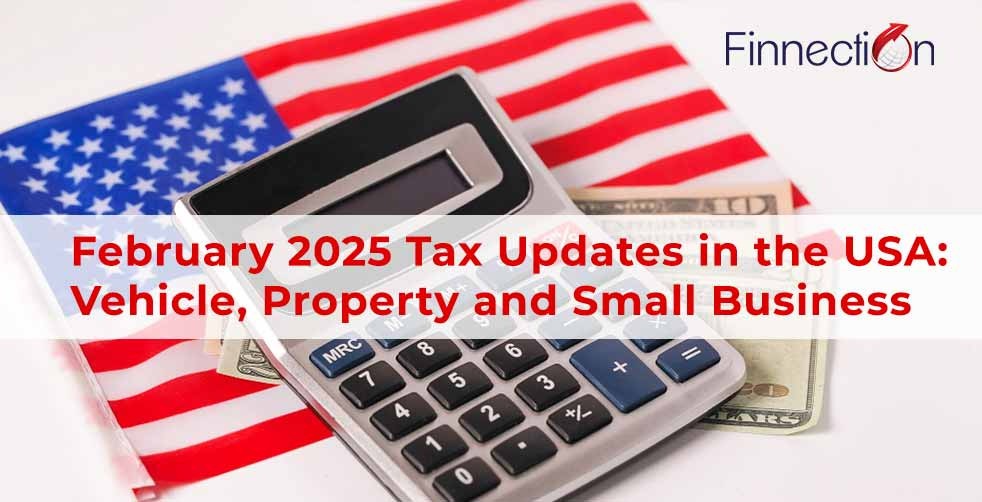As of February 2025, several tax updates have been implemented in the United States, affecting vehicle-related deductions, property taxation, and small business operations. These changes aim to stimulate economic growth, support small businesses, and address environmental concerns.

Vehicle-Related Tax Updates
- Section 179 Deduction: For the 2025 tax year, businesses can immediately deduct up to $1,250,000 of qualifying property, including vehicles, under Section 179 of the Internal Revenue Code. To qualify, the vehicle must be used for business purposes more than 50% of the time and placed in service during the 2025 tax year. This deduction allows businesses to reduce taxable income by expensing the full cost of eligible vehicles in the year of purchase.
- Bonus Depreciation: In addition to the Section 179 deduction, businesses can take advantage of bonus depreciation for new and pre-owned vehicles acquired and placed in service between January 1 and December 31, 2025. This provision permits an additional first-year depreciation deduction, enabling businesses to write off a significant portion of the vehicle’s cost in the year of acquisition.
- Commercial Clean Vehicle Credit: Businesses and tax-exempt organizations purchasing qualified commercial clean vehicles, such as electric or hydrogen fuel cell vehicles, may be eligible for a tax credit of up to $40,000. This incentive encourages the adoption of environmentally friendly transportation options and supports the transition to a greener economy.
Property Tax Updates
- Depreciation of Residential Rental Property: The Tax Cuts and Jobs Act (TCJA) of 2017 modified the depreciation period for residential rental property. As of 2025, property owners must continue to depreciate residential rental properties placed in service after December 31, 2017, over a 30-year recovery period. This change affects the annual depreciation deductions property owners can claim, impacting taxable income.
- Opportunity Zones: Investors who realized capital gains in 2025 can defer taxes by reinvesting those gains into Qualified Opportunity Funds (QOFs) that invest in designated Opportunity Zones. This program aims to stimulate economic development in underserved communities by providing tax incentives for long-term investments.
Small Business Tax Updates
- Tax Bracket Adjustments: The IRS has made inflation-related adjustments to tax brackets for the 2025 tax year. While the seven federal tax rates remain the same (10%, 12%, 22%, 24%, 32%, 35%, and 37%), the income thresholds for each bracket have increased slightly. Small business owners should review these changes to understand their potential impact on tax liabilities.
- Increased Audit Focus: The IRS has intensified audits targeting high-income earners and small businesses. To mitigate audit risks, small business owners are advised to maintain detailed records of expenses, payroll, and income, and ensure proper classification of workers as independent contractors or employees. Accurate record-keeping and compliance with tax regulations are essential to avoid potential penalties.
These tax updates reflect the U.S. government’s efforts to promote economic growth, support small businesses, and encourage environmentally sustainable practices. Business owners and investors are encouraged to consult with tax professionals to understand how these changes may affect their specific circumstances and to ensure compliance with the latest tax laws.
If you have any questions regarding Tax Updates, feel free to contact finnection via email at info@finnection.ca or call us at (647) 795-5462
Disclaimer: Above information is subject to change and represent the views of the author. It is shared for educational purposes only. Readers are advised to use their own judgement and seek specific professional advice before making any decision. Finnection Inc. is not liable for any actions taken by reader based on the information shared in this article. You may consult with us before using this information for any purpose.
